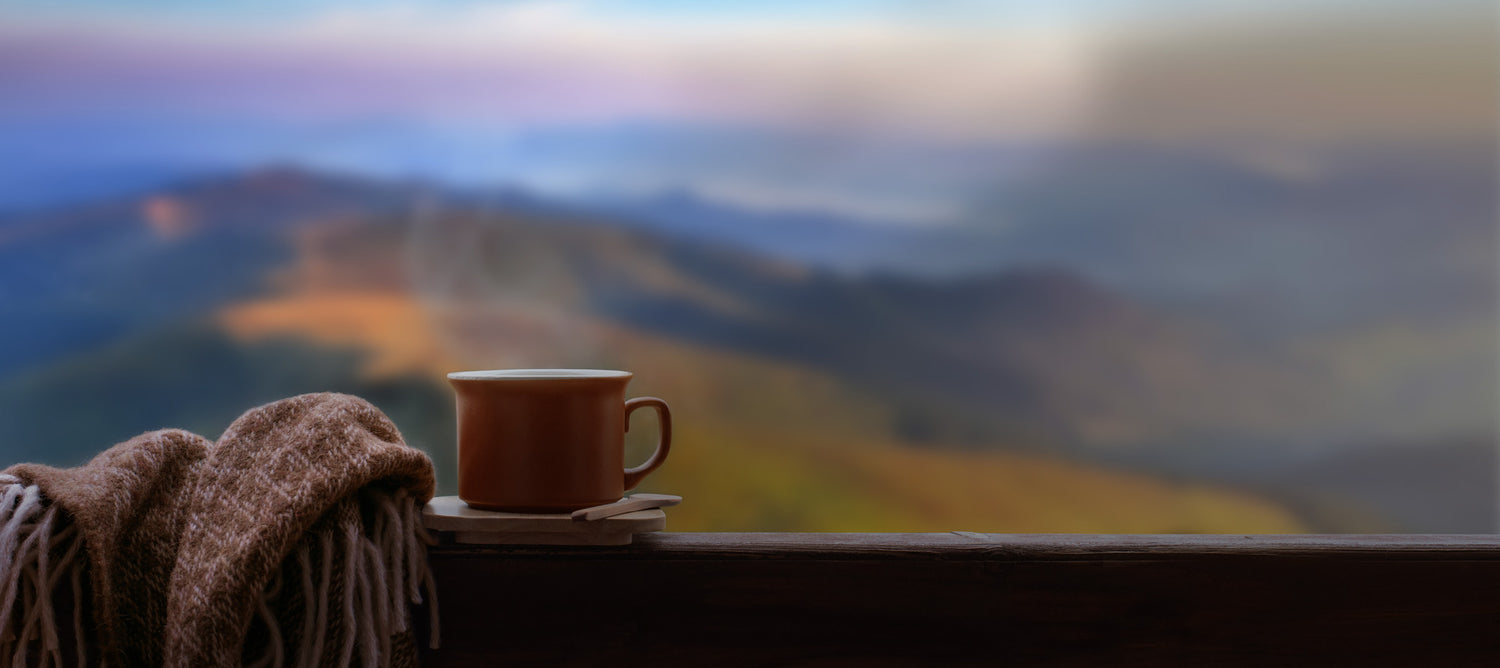
FAQ
Welcome to the Blue Lotus Chai FAQ page!
Here, you'll find answers to some of the most common questions about our products, ingredients, and brewing methods.
Whether you're a long-time chai enthusiast or new to the Blue Lotus Chai family, we're here to help you enjoy the perfect cup of chai every time.
If you don't find the information you're looking for, please feel free to reach out to our customer support team.
What is Masala Chai?
Masala Chai is a traditional Indian sweetened milk tea made by blending black tea with spices, sweetener, and hot milk. Our Traditional Masala Chai is made with brewed black tea, dried into a powder, and combined with our signature organic spices. It dissolves easily in hot water, so no steeping or straining is required.
♻️ How sustainable is Blue Lotus Chai’s packaging?
Our 2oz and 3oz tins are reusable and refillable, and our 8oz and 1lb bulk bags are packaged with Omnidegradable© materials.
How many calories are in Blue Lotus Chai?
Blue Lotus Chai is calorie-free until milk or sweetener is added. We encourage you to make it your own. 🧡
ⓥ 𝖦𝖥 ✅ Is Blue Lotus Chai vegan and gluten-free?
ⓥ 𝖦𝖥 ✅
Yes, our chai is vegan and gluten-free! Many people use their favorite plant-based milk—almond, soy, rice, coconut, oat, and others—and absolutely love it. For a creamier chai, we recommend using a higher ratio of milk to water, especially with thinner plant-based milks.
How much caffeine is in Blue Lotus Chai?
Our chai blends have between 17-31 mg of caffeine per quarter teaspoon serving, depending on the variety. That’s about 1/5 to 1/3 the caffeine of an 8 oz cup of coffee.
Caffeine content may vary slightly due to the natural differences in tea leaves and blending.
Explore our naturally caffeine-free varieties made with rooibos>
Do you have a caffeine-free version of your Masala Chai?
Yes! We offer our Organic Rooibos Masala Chai, which is naturally caffeine-free and similar in flavor to our Traditional blend, as well as our Organic Golden Rooibos Masala Chai, which has the additions of turmeric and maca.
Can I buy Blue Lotus Chai wholesale?
Yes! If you own a retail business, restaurant, or café, and have a tax ID number, you may be eligible to become a wholesale partner. Visit our wholesale request page for more details.
Does flash drying use chemicals? What is the process?
No, it’s a chemical-free process using heat and pressure.
I found a long fiber or string in my chai powder. What is this?
We source finely ground ginger and turmeric root powders. While we send all of our chai blends through a fine mesh screen before packaging, sometimes a plant fiber will sneak through the screen. Feel free to contact us at info@bluelotuschai.com if you are ever unsure what you are seeing in your chai.
What type of cinnamon is in your chai?
Our chai is made with certified organic cassia cinnamon.
Are there allergens in your facility or products?
Our products are allergen-free and we do not allow allergens in the production or warehouse areas of our facility.
🧪 Have your products been tested for lead or heavy metals?
Our black tea and certified organic spices are sourced from multiple suppliers and countries. Each batch is tested for various qualities, including lead and other heavy metals, to ensure safety and compliance with permissible consumption limits. It's important to note that elements like lead and mercury are naturally occurring and may be present in trace amounts in agricultural products.
What is your spiciest and least spicy chai?
Our Traditional Masala Chai is the spiciest, while our rooibos varieties are milder. We encourage you to try them all to find the best fit for you. Try our chai collections to try all of our varieties.
What is the best way to store my chai?
To maintain the freshness and flavor of your chai, store it in a tightly sealed container in a cool, dark, and dry place. Avoid refrigeration or freezing to prevent moisture and temperature changes.
Do you ship outside of the US?
Currently, we only ship to the US, but are working to expand globally. Reach out to us and let us know where in the world you'd like to see Blue Lotus Chai.
HOW DOES BLUE LOTUS CHAI SEAL THE CHAI TINS?
Blue Lotus Chai tins are closed after filling in our hygienic facility with transparent blue strip seals, which stretch across the lid and down onto the tin and are intended to prevent contamination or opening during storage, handling, and merchandising.
(All of our pouches and bags are heat-sealed)
What should I do if I receive damaged chai from Amazon?
Please contact Amazon customer service directly for assistance with any issues involving orders from our Amazon store.
